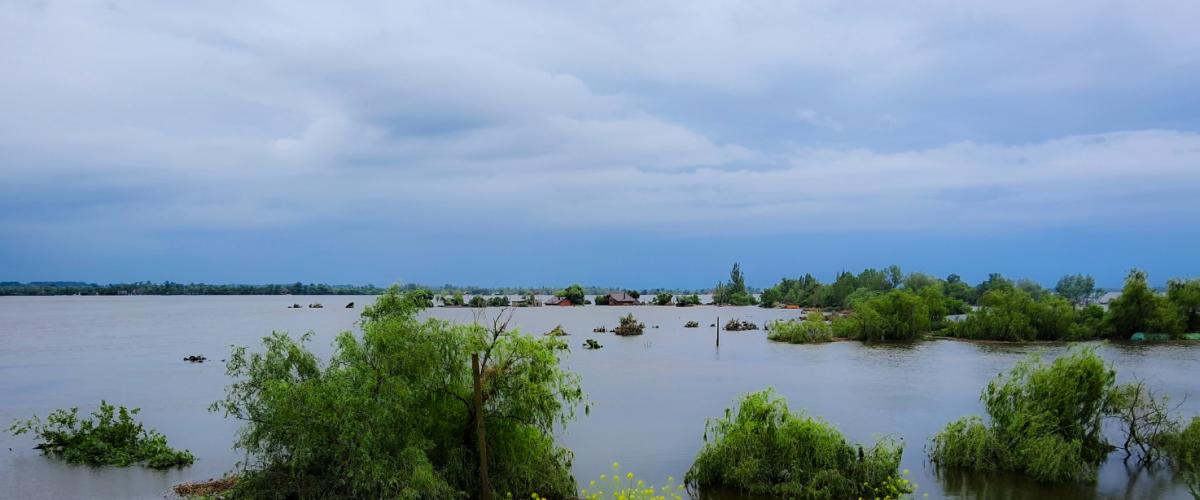A native of Sierra Leone who enrolled in CWRU School of Law “because of its strong international law programs and excellent reputation,” George Shadrack Kamanda graduated from our Law School in 2022 while simultaneously earning a Master’s Degree in Public International Law from Oxford University in the U.K. Just a few months after graduating and passing the Bar, George had obtained his dream job as a diplomatic and legal affairs officer at the Permanent Mission of Sierra Leone to the United Nations. A year later he was promoted to be a Legal Adviser of the Permanent Mission. We caught up with George who was happy to answer questions about his exciting career.
Can you tell us about your job at the U.N.?
As one of the Legal Advisers at the Permanent Mission of Sierra Leone to the United Nations, I serve as a Sixth Committee expert, representing our mission on the UN’s legal committee. Among my core responsibilities, I act as the case expert on the International Criminal Court and support matters involving the International Court of Justice, international tribunals, humanitarian law, conflict resolution and human rights. In addition, I offer specialized legal guidance on sanctions, advising on listing and delisting criteria and their legal implications. I also provide expert opinions on UN resolutions and other official documents, frequently collaborating with colleagues on cross-regional issues where legal considerations intersect. My role includes drafting statements, preparing talking points and interventions, and producing legal briefs, memos and advisory opinions. My work is integral to advancing Sierra Leone’s diplomatic and legal objectives at the UN, ensuring our mission adheres to international standards and aligns with strategic priorities.
What is the most exciting thing you have worked on at the U.N.?
Choosing just one highlight from my work at the United Nations is challenging because my entire role excites me. Every day presents intellectual challenges and opportunities for growth in international law while I build connections with diplomats and advocates worldwide. However, two specific projects stand out. In April 2023, Sierra Leone proposed amendments to the Rome Statute of the International Criminal Court to include slavery and the slave trade as crimes against humanity. As the lead legal expert, I have been deeply engaged in the diplomatic process to make this amendment a reality. Another significant focus of my work is advocating for a stand-alone Crimes Against Humanity (CAH) convention. A few weeks ago, during the UN Sixth Committee plenary session, I had the honor of speaking on behalf of 86 countries, calling for action on CAH and the establishment of a stand-alone treaty or convention.
You graduated from our law school just two years ago. How did you obtain your position?
I obtained my position through active engagement and professional networking. I visited the permanent mission several times to express my interest in joining the team and submitted my qualifications. Recommendations from key individuals, such as the ambassador and foreign minister, were essential, with final approval from the president of Sierra Leone. This holistic process led to my appointment, allowing me to serve as an international and humanitarian law legal expert. Networking and honing my expertise were crucial, and I owe much of my preparation to Case Western Reserve.
How did our law school prepare you for your position?
CWRU provided me a solid foundation in international law and humanitarian law. The rigorous academic curriculum honed my analytical skills and deepened my understanding of complex legal frameworks. Additionally, the school’s emphasis on practical experience through externships allowed me to apply theoretical knowledge in real-world settings. Furthermore, the mentorship I received from faculty was invaluable in guiding my career path. This combination of substantive knowledge and mentorship equipped me with the skills and confidence to engage effectively in the international arena.
What advice do you have for our students interested in pursuing a career in public international law?
My advice is to prioritize professional networking and seek mentorship. Actively engage with professionals in the field by attending events, visiting missions and expressing your interest in joining their teams. Building relationships with key individuals can open doors to opportunities. Additionally, focus on developing substantive knowledge in international law and humanitarian law. Seek out internships and training programs that enhance your expertise. Remember, a supportive mentor can guide you through the complexities of the field, so don’t hesitate to reach out to those who can help you grow professionally.




